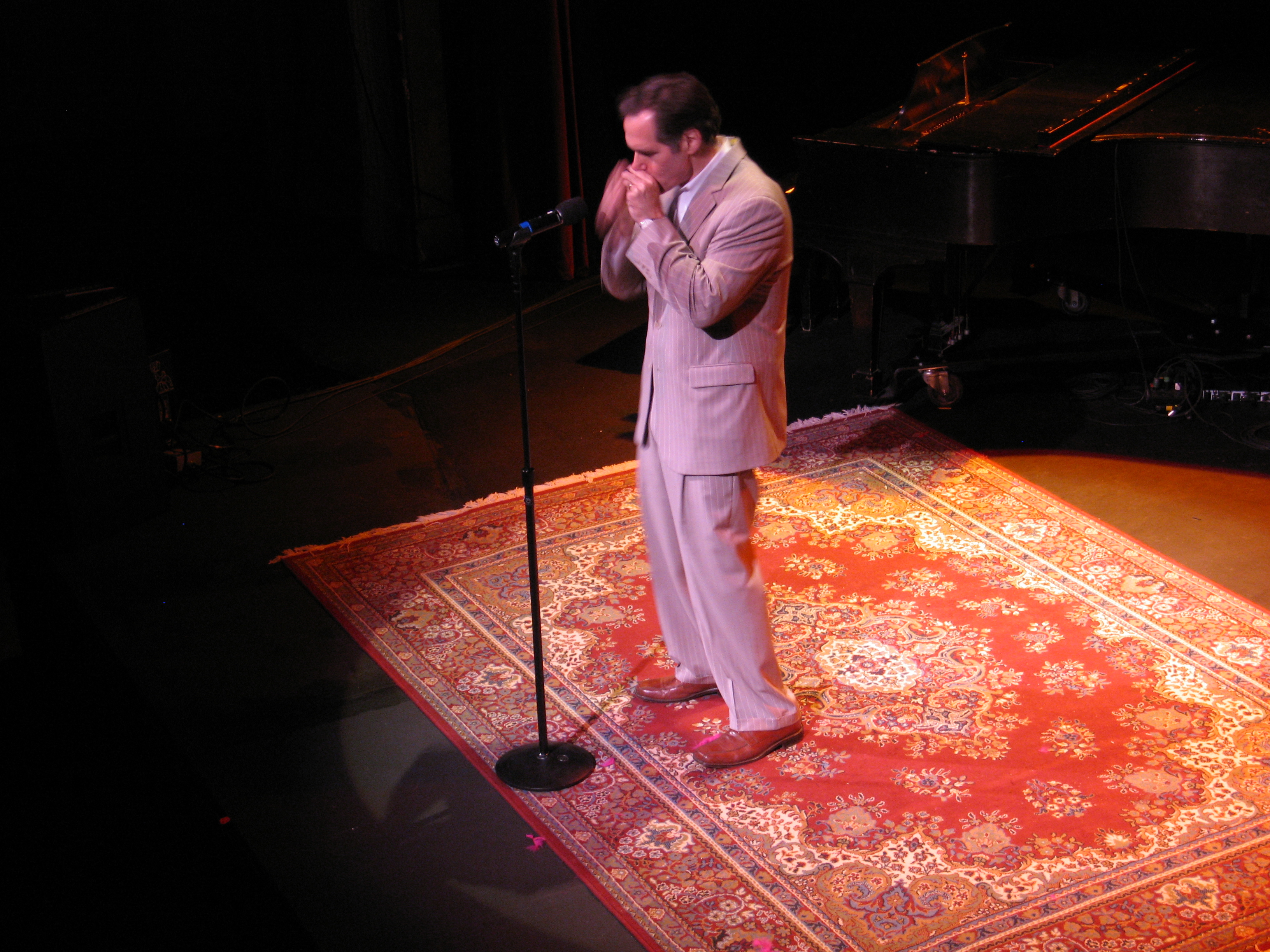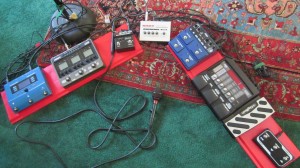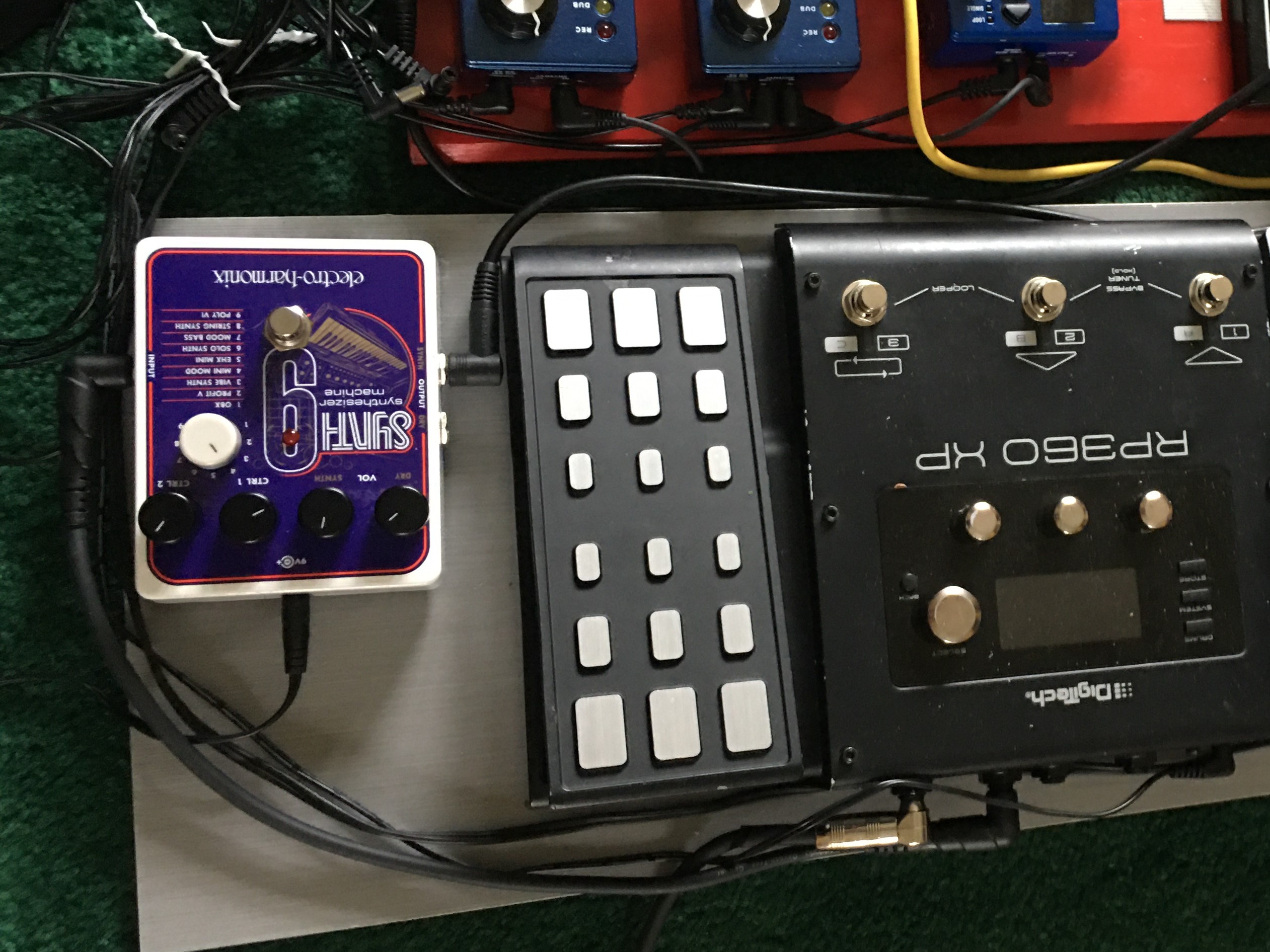
Why is Harmonica Not a Foundational Instrument? Because You Can’t Sing While You Play It
There are a few instruments–or roles, perhaps–that you hear in just about every band that’s playing anything related to roots or any popular style. Something is making a bass line. Something is percussively pounding out a rhythm. Something is playing chords or adding color above the bass and percussion–maybe more than one thing. Above all, someone is singing. And it’s that, not the limitations of the harmonica, that make it a non-foundational instrument–that is, not an instrument that must be present in any band.
If you play any kind of bass, drums, keyboards, or guitar, you’ve got a foundational instrument. Something’s got to play the role your instrument plays in the band. With modern electronics (like, of course, a Digitech RP device and my patch set), you can actually play any of those roles with a harmonica or two (or seventy-five, if you want to play a lot of different stuff–you need some pretty specific instruments to fill certain roles on certain songs). What you can’t do with a harmonica is sing at the same time.

I suppose “foundational” also implies something lower-pitched than most harmonicas–something that has some bass in the tone. That used to be a problem for harmonica, but it’s not anymore, with pitch-shifting electronics like a Digitech RP with my patch set, and low-pitched harmonicas like the Hohner Thunderbird and various Seydels and Suzukis available. Pitching the harmonica down also helps keep it out of the way of the vocal. And in modern popular music–including most genres that are popular enough to support more than a few artists, not just “pop” music–the human voice dominates. If you play bass, guitar, keys, or drums, you can sing while you play, because it’s your hands and feet that do the playing, not your mouth and your lungs.
But if the harp player sings, you’ll only hear the harp between vocals, which means it can’t fill a role in the foundation. I suppose that the looper is the device that solves the problem, but it introduces other problems. With a looper, a harmonica player can create a foundation and sing over it. That solves the problem of putting the harp in the foundation. However, it makes it harder to play with others; a lot of musicians find it difficult to stay in sync with a loop. If you have a full band playing to a loop, everybody needs a click feed to stay in sync, so the setup gets more complex. And a looper isn’t native to traditional styles, just about by definition.

Another option is to find a band that wants the harp in the foundation, and never mind the singing. In that case the harp is really defining the sound of the band. That’s the story of Magic Dick with the J. Geils band. He didn’t have to sing with the band; the rest of them had that covered. His first great contribution was to put the harp right into the rhythm section. And the sound of the band was different from any other as a result.
It’s possible now, with non-standard tunings and various FX, to go well beyond what was possible with a traditional amped rig in 1971. In other words, the harp can now take on an even wider range of roles in the band, moving deeper into the various roles in the rhythm section (and farther in front on the lead). Assuming that said harp is not in the hands of a person whose primary role is singing.
Anyway, harp players have a big choice to make. They can sing more and put the instrument down more frequently, or they can play more and be more integral to the sound of the band. Not a simple choice; great opportunities on both sides. Time to be awesome, I guess, one way or the other. Or both. I’m reminded that Little Walter had plenty of instrumentals in his repertoire. So perhaps the key is in fact to embrace the limitation. We can do everything–just not all at once.
Tags In
Related Posts
Leave a Reply
You must be logged in to post a comment.
WHAT’S NEW
Categories
- Audio/Video
- Blog
- Blue Future
- Digitech RP Tricks and Tips
- Discography, CDs, Projects, Info, Notes
- Featured Video
- For the Beginner
- Gallery
- Hunter's Effects
- Hunter's Music
- Huntersounds for Fender Mustang
- Meet the Pros
- More Video
- MPH: Maw/Preston/Hunter
- My Three Big Contributions
- Player's Resources
- Pro Tips & Techniques
- Recommended Artists & Recordings
- Recommended Gear
- Recorded Performances
- Reviews, Interviews, Testimonials
- The Lucky One
- Uncategorized
- Upcoming Performances
- Zoom G3 Tips and Tricks
